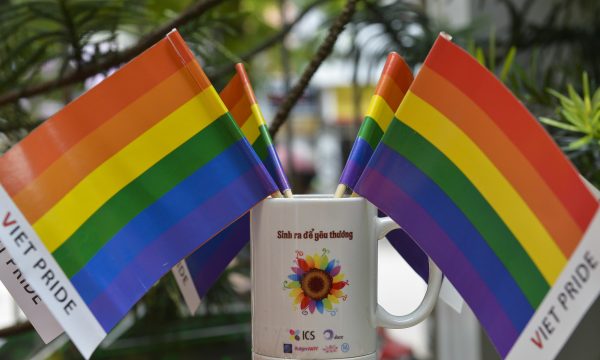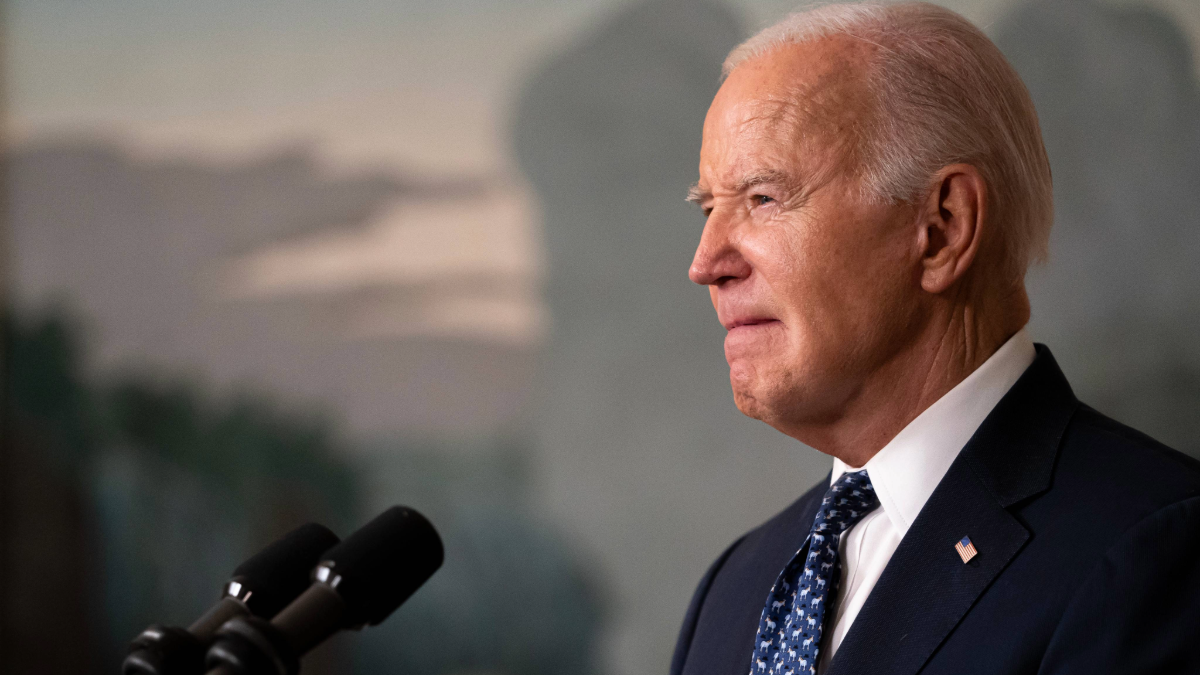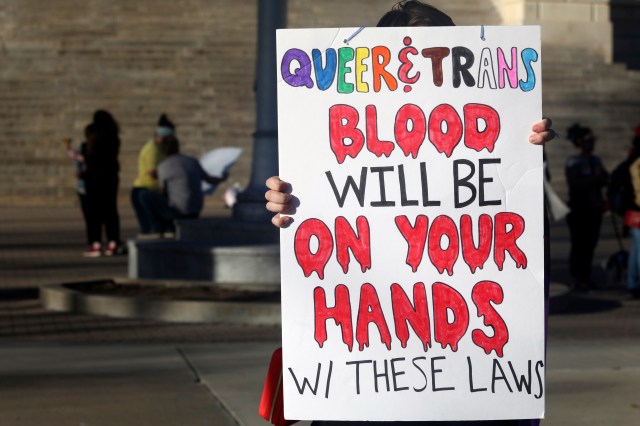
Conservatives in Thailand like to buck the trend. It was Anutin Charnvirakul, the health minister under the former military government, who legalized cannabis (and it was the self-styled liberal democrats in the government who wanted to criminalize it again), and it was those military reactionaries who declared that the country’s war on drugs had been a failure. And almost all parliamentarians, including the militarists, voted to move forward with a draft bill on marriage equality in late December, so clearly there is bipartisan support in the polarized National Assembly to make same-sex marriage legal, which would make Thailand the first Southeast Asian country to do so. In society, too, there’s overwhelming support for such a move. Take it with a little pinch of salt, but a government-commissioned survey ahead of the parliamentary vote found that 96.6 percent of Thais support same-sex marriage.
It’s been a hit-and-miss few years for gay rights in the region. In 2022, Vietnam’s health ministry finally declared that homosexuality is “not a disease,” although what’s stunning is that this came almost a decade after Vietnam was the first country in Asia to debate the issue of same-sex marriage in the national parliament. As a result of that debate, same-sex marriage is neither illegal nor recognized by the state, meaning same-sex couples can marry though it isn’t protected under the law.
In 2022, Singapore’s parliament decriminalized gay sex but, at the same time, amended the constitution to prevent legal challenges to the definition of marriage, thus denying same-sex marriage. On the other hand, Indonesia last year de facto outlawed homosexuality when it forbade sexual relations outside of marriage; given that same-sex marriage is banned, sexual relations between same-sex couples are also forbidden. Malaysia was in the news in November for the Johor state government’s plan to build a “rehab” center for people in same-sex relationships. A month earlier, a minister presumably thought it necessary to inform parliament that there have been no same-sex marriages registered in Malaysia.
What does the Southeast Asian public think? A Pew Research Center survey published last November found that 65 percent of Vietnamese were in favor of same-sex marriage, as were 60 percent of Thais and 57 percent of Cambodians. The rate of support was just 45 percent in Singapore. But it fell to just 17 percent in Malaysia and 5 percent in Indonesia – and the overwhelming majority of those people “strongly disapproved,” not just “somewhat disapproved.”
Frustratingly, the Philippines wasn’t surveyed. A local pollster last year found that 79 percent of Filipinos agreed that “gays or lesbians are just as trustworthy as any other Filipino,” although another survey from 2018 found that only a fifth supported same-sex marriage. This was frustrating because it would have been good to compare the attitudes of a Catholic-majority country. Indeed, what obviously distinguishes Malaysia and Indonesia from the countries where a majority of people support same-sex marriage legislation is religion, namely Islam.
The Pew survey also broke down the results within the countries by religion. Whereas only 8 percent of Malaysian Muslims were in favor of same-sex marriage, it was up to 35 percent for Christians, 49 percent for Hindus, and 59 percent for Buddhists in the country. The same pattern was found in Singapore and Thailand. Only 21 percent of Singaporean Muslims supported same-sex marriage, compared to 53 percent of Buddhists and 60 percent of Hindus in the city-state. In other words, a majority of Buddhists in Thailand, Malaysia, Singapore, and Vietnam were in favor of same-sex marriage.
So what about the “religious argument,” which, judging by the percentages stated above, is actually the Muslim and (to a lesser extent) Christian argument? Accept their position as heartfelt, maybe, but only if you are willing to overlook the very obvious fact that Indonesia is formally a secular state and all manner of religious instruction is violated there and in Malaysia. A politician in Kuala Lumpur or Manila might be able to point to Leviticus or to a hadith to justify arguing against any rights for gays, but they cannot be allowed to do so without accusations of double standards. Does the government in the Catholic Philippines enforce all the instructions in Leviticus?
Equally so with Muslim-majority Indonesia and Malaysia. There are numerous instructions and restrictions in the Quran and hadiths that the governments of those two countries ignore. One interpretation of the Hadith is that illicit heterosexual sex (adultery or sodomy) should be punished the same as homosexual acts: namely, execution by stoning. Yet that didn’t stop Malaysians from electing as their prime minister someone who has twice been imprisoned for sodomy. More to the point, no one is seriously arguing for marriage equality in religious institutions in those countries. The argument is for marriage equality under the state.
Yet, there is no religious aspect to why Vietnam and Laos, two communist states, haven’t legalized same-sex marriage. Nor, indeed, why Southeast Asia’s other Buddhist-majority nations (Cambodia and Myanmar) have not done so yet. The simple explanation is prejudice. Another explanation is that the gay community in Vietnam or Laos or Cambodia isn’t as vocal as it is in Thailand, thus there are fewer reasons for politicians, who naturally want to keep controversy to the minimum, to wade into the debate.
Actually, one thinks, the reasoning is a little more complicated. Much of the narrative from LGBT-rights advocates stems from the proposition that it is a “dispossessed” or “oppressed” community, which is quite obviously the case. Supporters of the cause also lend to the idea that it is somehow countercultural. One of the groundbreaking films on gay love in Vietnam was “Rebellious Hot Boy” (Hot boy nổi loạn).
Authoritarian governments are naturally wary of any group being labelled “dispossessed” or “oppressed” since that implies the government is the oppressor – or, indeed, that the national community is oppressive. Moreover, if, as it seems, authoritarian governments consider the LGBT community to be subversive, they would be naturally wary of being seen to be “giving in” to the demands of a community that says it is fighting for its rights. So, in one way, the way that LGBT rights and same-sex marriage are often framed may be fueling resistance from authoritarian governments.
There is a notion that only progressives support same-sex marriage. It’s far from obvious why that should be the case. Somsak Thepsuthin, Thailand’s deputy prime minister, noted that same-sex marriage would “provide rights, responsibilities, and family status as equal to the marriage between a man and a woman presently in all aspects.” Linger on responsibilities. The equal marriage debate is as much about the legal and financial implications as it is about rights. It’s about inheritance and tax and legal recognition by the state; it’s an appeal to become a part of the existing social fabric, an appeal to become a member of the capitalist club, if you like, rather than cutting oneself off society. Indeed, it’s an appeal to the existing order.
In the West, in the 1980s, gay progressives and radicals, especially those who lived through the Stonewall movement of the previous decades, were also opposed to same-sex marriage, which they saw as profoundly conservative. As one Anglo-American commentator put it in 1989: “The gay movement has ducked this issue primarily out of fear of division. Much of the gay leadership clings to notions of gay life as essentially outsider, anti-bourgeois, radical. Marriage, for them, is co-optation into straight society.”
There are also perceptions that LGBT rights are a Western imposition. When in opposition, Aung San Suu Kyi was supportive of gay rights, if only because of the crisis of HIV – which, in itself, is another problem, since many Southeast Asian leaders seemingly only talk about LGBT issues in terms of a public health crisis, fostering an idea that homosexuality is not only subversive but infectious. In office, however, it was another matter for Aung San Suu Kyi. Win Htein, one of her closest aides, said bluntly that Myanmar “is not like the West. Gender issues are not important.” Reuters paraphrased his comment like this: “he was ‘not interested’ in tackling LGBT rights abuses, and… gender issues imported from the West were not important in Myanmar.”
Win Htein’s notion isn’t uncommon in the region – and nothing motivates a particular breed of Southeast Asian politician as much as deriding anything that is considered Western. Ryamizard Ryacudu, a former Indonesian defense minister, claimed the LGBT movement was part of a proxy war to conquer Indonesia. “It’s dangerous as we can’t see who our foes are, but out of the blue everyone is brainwashed – now the (LGBT) community is demanding more freedom, it really is a threat,” he said in 2017. Mahathir Mohamad, the pest of Malaysian politics, naturally thinks LGBT rights are another Western ideology colonizing Asia.
This phenomenon isn’t unique to Southeast Asia, either. As the Economist noted last year, an article published in People’s Daily in 2012 by a senior Chinese scholar sought to identify five groups that the West might use to infiltrate Chinese society: “rights lawyers, underground religious activists, dissidents, internet leaders and – most chillingly – ruoshi qunti or ‘vulnerable groups.’”
It’s pretty obvious that same-sex marriage isn’t unpopular in much of the region – and that there is a plurality within many Southeast Asian states that are in favor of it. That ought to be enough for a broader conversation. One step might be to alter the narrative slightly, away from the LGBT community being unanimously “dispossessed” or “oppressed” and toward the idea that equal marriage is about responsibilities as much as rights; it’s about being able to enjoy social and financial institutions just like anyone else. Thailand should be an example that you can get conservatives and reactionaries on board.



